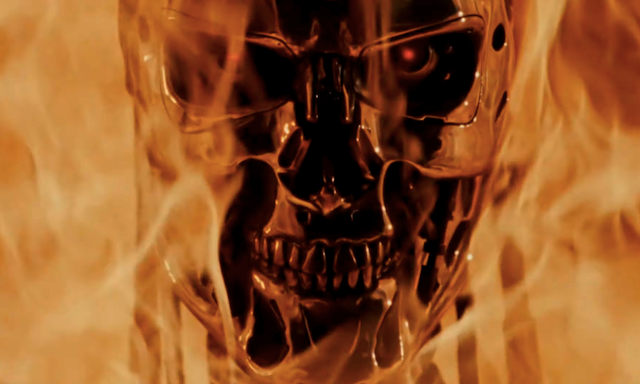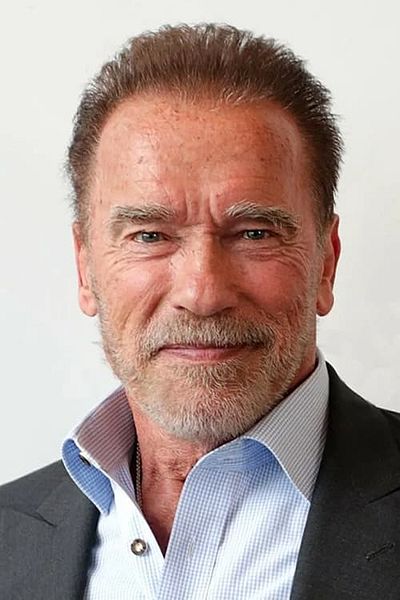Action movies are frequently a business and rarely an artform.
Like horror movies, they have a disposable nature to them. They can be made relatively cheaply, turned out into cinemas and streaming services, and if they fail, producers have only put up small amounts of money. But when they strike it big, they become a franchise. In the '90s, you had 'Die Hard'. In the '00s, you had Matt Damon' forgetful assassin, Jason Bourne. In the '10s, it was Vin Diesel and his Waltons-esque family soap operas in cars. In 1991, however, 'Terminator 2: Judgment Day' vaporised them all.
It debuted thirty years ago this weekend and eventually sold 48 million cinema tickets in the US and Canada. Globally, it was the biggest movie of 1991, defeating Kevin Costner's curiously American accent in 'Robin Hood: Prince of Thieves'. It was critically acclaimed, with the likes of Roger Ebert, and the Washington Post, citing its dynamic action and special effects. It would go on to win four Oscars, two BAFTAs, a Hugo Award, and a People's Choice Award. Arnold Schwarzenegger became a household name. 'You Could Be Mine', the song by Guns 'N Roses featured in the movie, was a Top 10 hit around the globe. Indeed, 30 years on, 'Terminator 2: Judgment Day' frequently tops critics' lists of action, sci-fi, and sequel movies.
Its ending was sublime. The T-800, realising at last what is it to be human and sacrificing himself in order to protect humanity and John Connor. The final thumbs up as he's lowered into the fire. The long and winding road that leads into an uncertain but hopeful future for John and Sarah Connor, with no fate but what they made of it. What kind of fate did they have? Not a great one, frankly.
Twelve years later, 'Terminator 3: Rise of the Machines' landed in cinemas and without James Cameron's involvement. It was, at that point, the most expensive movie ever made with a budget topping out at $187 million. Arnold Schwarzenegger picked up $30 million of that figure in his own salary. The results, frankly, speak for themselves. It made approximately $100 million less than 'Terminator 2: Judgment Day', it received few critical plaudits, and almost no awards of any kind.
Six years passed, and then arose 'Terminator: Salvation' by the mononymous director McG. It is chiefly remembered for one of its stars, Christian Bale, losing his cool on set with cinematographer Shane Hurlbut during a tense scene. Production on a direct sequel was halted when the production company behind the movie entered into bankruptcy protection. Seven months after its release, the production company auctioned off the rights to the 'Terminator' franchise, eventually settling with Skydance Productions. What followed was 'Terminator Genisys'.
In interviews subsequent to the movie's release, Emilia Clarke - who played Sarah Connor - expressed relief that a sequel was cancelled. Alan Taylor, who directed 'Terminator Genisys', had previously worked with Clarke on 'Game of Thrones'. Of Taylor, Clarke said that he "eaten and chewed up" during the production. "He was not the director I remembered. He didn't have a good time. No one had a good time." The rumour circulating at the time of its production was that things were so bad on set that the crew and actors working on Josh Trank's equally troubled 'Fantastic Four' were glad they weren't on 'Terminator Genisys'.
After 'Genisys' came 'Dark Fate' in 2019, the first movie since 'Terminator 2: Judgment Day' to have James Cameron's involvement, and saw Linda Hamilton return as Sarah Connor. The reviews were cautiously optimistic, damning with faint praise and calling it the third-best movie of the franchise. Financially, the movie was a bomb and ended up losing close to $130 million. All future plans for a new trilogy were scrapped.
Why has every movie that followed 'Terminator 2: Judgment Day' failed to make an impact? Is it because they lack James Cameron's creative abilities? Cameron was heavily involved with 'Dark Fate', yet it failed to succeed. Was it because Arnold Schwarzenegger was aging out of the role? He looked much as he did in 'Rise of the Machines', and was barely in 'Terminator Salvation' at all. The reason is much more simple than that. The final moments of 'Terminator 2: Judgment Day' effectively wrote the entire franchise into a corner from which it could never get out, and has never gotten out of.
All evidence of the T-800 was destroyed, every potential scrap of technology has been burnt away, and the only survivors are John and Sarah Connor. Any attempt to prolong their story failed because it ended then and there. How do you rewrite what is one of the greatest endings in action cinema so that it can go on for four more movies? You can't. It's the same reason why 'Die Hard' has never really managed to excel past 'Die Hard with a Vengeance'. John McClane can only be in the wrong place at the right time so many times before it stops being fun and starts being even more ridiculous. Likewise, how could it be that Terminators keep coming from the future if that future has been halted in the present? That's what makes the ending so satisfying - because it is an ending. They're all gone, and Sarah and John Connor now have to try and live in the world they helped to save.
Sadly, the only entry in the franchise that tried to explore this and do so reasonably successfully was 'The Sarah Connor Chronicles', a short-lived TV series that ran for just under a year before 'Terminator Salvation' came on the screen. Starring pre-'Game of Thrones' Lena Headey as Sarah Connor and Garbage singer Shirley Manson as a shapeshifting T-1000, the series saw John and Sarah on the run from the FBI and trying to blend into civilian life. Though it was hobbled by its budget and a TV studio unwilling to give it a chance, it explored some intriguing concepts - the idea of fate and destiny, parenthood, PTSD, and all of it anchored with committed performances from the cast. That it lasted just two seasons seems to underline how the franchise was doomed to failure, even when it was trying to do something different with it instead of retreading the same steps and beats again and again.
The likelihood is that the 'Terminator' franchise has had its day. Arnold Schwarzenegger is 73 years old, and is more involved with environmental activism. James Cameron, for his part, is heavy into the 'Avatar' franchise. Linda Hamilton, who was semi-retired before 'Dark Fate', openly admitted that she would be happy never to return to the role of Sarah Connor. Had this finality occurred thirty years ago this weekend, we might have all been spared the ignominy of having to watch something like this.



















































































